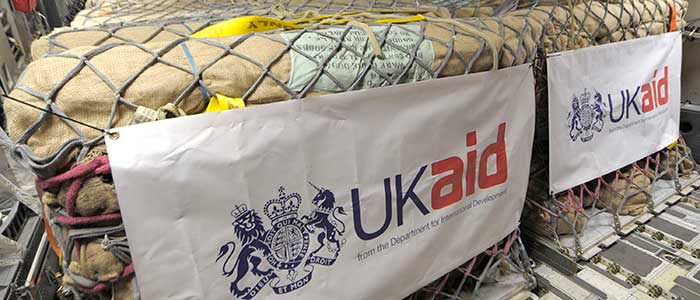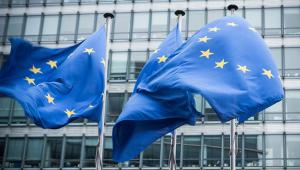The country’s secretary of state for international development, Priti Patel, has been signalling for months that there could be a new direction in store for UK aid.
Now, Britain’s Department for International Development has published a strategy explaining how it will combine its core mandate to reduce poverty with work on economic development.
The new economic development strategy states that this is “a hallmark of building a Global Britain”, using the term adopted by the government to describe the country, following the public’s vote to abandon the European project.
It will focus mainly on Africa – where a booming population means that an estimated 18 million extra jobs are needed every year.
UK aid’s work on trade is currently subject to EU rules. After Brexit, DFID will be looking to exploit any new possibilities that arise from Britain’s departure from the bloc’s single market, which looks increasingly likely to take place.
This will include working closely with other government departments, namely the Department for International Trade, to forge trade deals with new, developing country partners.
Where its work doesn’t directly involve the UK, it will serve to build the country’s “trading partners of the future”, the document said.
DFID doesn’t currently envisage any increases to the budget for its economic development work, which now stands at £1.8bn per year. However, funding for private sector projects channelled through the department’s controversial development finance arm, the CDC, will be ramped up.
As well as boosting developing economies, the strategy is oriented around serving the British national interest – another priority of the secretary of state.
The fact that the UK’s £12bn aid budget has been the subject of increasingly heated debate in recent months won’t have escaped the attention of Patel, herself a former aid critic.
While she has long advocated a greater focus on economic development and trade, and the strategy has been in the works for some time, she stressed its role in ending aid dependency and serving the British interest – namely by preventing future increases in migration.
Although this is the first time DFID’s focus on economic development has been so explicit, it has been a key plank of the department’s work for some years. Now, however, DFID wants it to be smarter and more focused without taking away from its other activities.
The strategy will focus on areas including: partnerships with businesses, from big international firms to developing country SMEs; developing innovative financing mechanisms; new financial technology and investment in risky economies; a focus on infrastructure and urban development; and, boosting agriculture, manufacturing, exports and services, and the extractive industries.
DFID said its other priorities, including on poverty reduction, women and girls, and tackling the exclusion of other groups – such as those with disabilities – will be woven into this work.
There will be no blanket strategy – barriers will be tackled based on the specific context. But DFID expects there will be some nations at the tipping point of economic development, and seen as presenting a real opportunity, which will be the focus of its economic development work.
These are likely to include countries in the east African corridor – Ethiopia, Kenya, Rwanda and Uganda, for example. For a fragile state like South Sudan, DFID’s approach is likely to be different and, by implication, less intensive.
The strategy does, however, reaffirm the department’s commitment to spend 50% of its budget on fragile states. It states that economic development will be a “significant part” of this investment in countries like Nigeria, Pakistan, Afghanistan and Somalia.
Saira O’Mallie, interim UK director of anti-poverty group ONE, welcomed this continued commitment to fragile states and said helping poor countries develop into prosperous nations is a “sensible goal”.
“But here we sound caution,” she added, noting that institutions like the CDC also need to focus on fragile states and that civil society should be involved to ensure that people’s rights are respected and that they are not exploited amid the pursuit of economic growth.
Access to education, particularly for girls, also needs to be a priority alongside health, governance and transparency.
“Education equips a more skilled and employable workforce who can realise in their own communities the same ambitions and dreams that we enjoy,” she said. “Ensuring that every classroom has access to the internet and investing in innovative education solutions will ensure that the need for aid ends sooner.”














